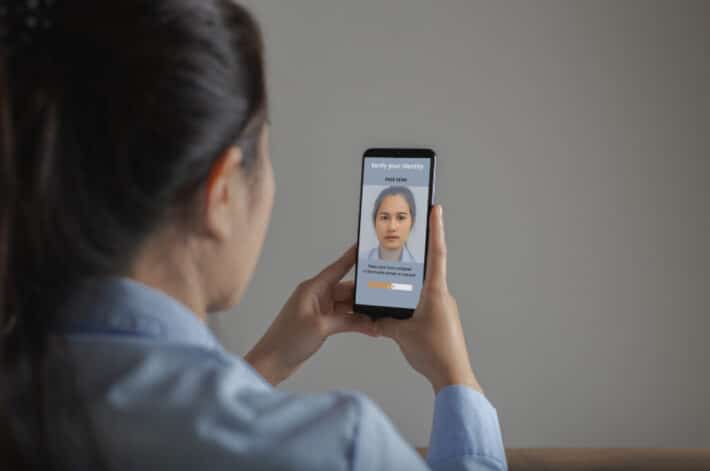Healthcare Identity Assurance Navigating The Landscape Of Verification

In the realm of healthcare, accurate verification of patients’ identities is paramount for the safety and efficacy of medical procedures. Discover the concept of Healthcare Identity Assurance, its significance, the risks associated with insufficient identity verification, and the existing verification methodologies in use.
Examine the obstacles and advantages associated with the adoption of Healthcare Identity Assurance to enhance patient safety and optimize processes within healthcare institutions.
What is Healthcare Identity Assurance?
Healthcare Identity Assurance is a crucial process that involves the verification and management of the digital identity of patients to ensure the accuracy and security of patient information within healthcare systems. This process is essential in safeguarding sensitive data, such as medical history, test results, and treatment plans, from unauthorized access or tampering.
By confirming the identity of individuals accessing healthcare services, Healthcare Identity Assurance plays a significant role in preventing fraud and identity theft in the healthcare sector. It also streamlines administrative tasks by ensuring that patient records are correctly linked to the respective individual, thereby reducing errors and enhancing the quality of care provided. Healthcare systems heavily rely on Identity Assurance to uphold data integrity and protect patient confidentiality.
Why is Healthcare Identity Assurance Important?
Healthcare Identity Assurance is of utmost importance as it enables healthcare providers to uphold data security, adhere to regulatory requirements, and safeguard patient privacy.
What are the Risks of Inadequate Identity Assurance in Healthcare?
Insufficient Identity Assurance in the healthcare sector can give rise to substantial risks, such as identity theft, data breaches, and heightened fraudulent activities, which in turn can erode the integrity and trust in healthcare systems.
Identity theft presents a significant peril to the confidentiality of patients’ personal information within healthcare systems, potentially resulting in financial losses and reputational harm for both individuals and establishments. Conversely, data breaches have the capacity to expose sensitive medical records, precipitating privacy infringements and potential regulatory sanctions.
Hence, it is imperative to institute robust fraud prevention mechanisms and strategies for averting data breaches in the realm of risk management. Additionally, this proactive approach is essential for the protection of patient data, ensuring the preservation of confidentiality, and upholding the security of healthcare information.
What are the Current Methods of Healthcare Identity Verification?
The methodologies for Healthcare Identity Verification have advanced to encompass traditional approaches, biometric authentication, and digital verification platforms to enhance identity validation rigor.
1. Traditional Methods
Conventional approaches to healthcare identity verification entail the use of credentialing and identity proofing methods that involve validating personal documents.
These established practices have long been employed to verify that individuals seeking healthcare services are authentic in their claims. Credentialing serves a crucial function in this context by verifying the qualifications and professional history of healthcare practitioners, while identity proofing is aimed at confirming the identities of patients and other stakeholders within the healthcare system. Typical validation procedures frequently encompass the verification of government-issued identification documents, the implementation of background checks, and the cross-referencing of information against official databases to establish a foundation of trust and security in the healthcare domain.
2. Biometric Methods
Biometric methods utilized for healthcare identity verification encompass various authentication techniques, including fingerprint scanning, facial recognition, and iris scanning. These techniques are implemented to ensure the security of transactions and to achieve precise identity verification.
Fingerprint scanning, a widely employed biometric method, entails the capturing of an individual’s unique fingerprint patterns to facilitate access or verify their identity. Additionally, facial recognition technology, on the other hand, scrutinizes facial attributes such as eye distance and facial shape to facilitate accurate identification. Additionally, iris scanning leverages the distinct patterns present in the colored portion of the eye to deliver a heightened level of security.
The incorporation of these biometric methods is imperative within the healthcare sector as they serve to thwart unauthorized access, diminish instances of fraud, and uphold the confidentiality of patient information.
3. Digital Identity Verification
Digital Identity Verification in healthcare utilizes advanced verification tools and platforms to deliver secure identity verification and uphold data integrity. Additionally, these tools and platforms employ a range of techniques, including biometric authentication, two-factor authentication, and blockchain technology, to ensure that only authorized individuals can access sensitive patient information.
By integrating these sophisticated methods, healthcare organizations can establish a sturdy security framework that defends against identity theft, fraud, and unauthorized access.
This not only protects patient data but also fosters trust and adherence to regulatory mandates. The real-time verification and monitoring features of these tools facilitate prompt detection of any suspicious activities, enabling proactive steps to be taken to forestall potential security breaches.
What are the Challenges of Implementing Healthcare Identity Assurance?
The implementation of Healthcare Identity Assurance presents numerous challenges, such as ensuring strong cybersecurity measures, effectively managing costs, and meeting regulatory compliance mandates, all while integrating cutting-edge technological solutions.
1. Privacy Concerns
Privacy concerns pose a significant challenge in healthcare identity assurance, necessitating rigorous measures to safeguard patient privacy and uphold confidentiality in accordance with privacy regulations.
Patient privacy and confidentiality serve as foundational components in fostering trust between healthcare providers and patients. Additionally, by protecting sensitive information such as medical records and personal data, not only is a patient’s dignity and autonomy preserved, but also potential harm or misuse is prevented. Adherence to privacy regulations serves not only to shield patients from identity theft and fraud but also to maintain ethical standards and legal mandates within the healthcare sector. Compliance with these regulations showcases a dedication to prioritizing the well-being and rights of patients in all healthcare practices.
2. Data Security
Ensuring data security is a significant challenge in healthcare identity assurance, requiring robust data protection and secure communication protocols to safeguard sensitive information.
The healthcare sector manages extensive volumes of confidential data, encompassing patient records and financial details, rendering it susceptible to cyber threats. Additionally, the implementation of strong data protection measures, including encryption, access controls, and routine security audits, is imperative to mitigate unauthorized access and data breaches.
Incorporating secure communication techniques, such as encrypted emails and secure messaging platforms, provides an additional layer of security when exchanging sensitive information among healthcare professionals. Moreover, the adoption of multi-factor authentication and the provision of cybersecurity training to staff are pivotal in upholding a secure environment for patient data.
3. Cost
The implementation of healthcare identity assurance carries a significant cost, necessitating meticulous risk assessment and alignment with healthcare policies to ensure sustainable investments.
Identity assurance plays a critical role in protecting patient data, preventing fraudulent activities, and ensuring adherence to regulations. Through precise verification of the identities of healthcare professionals and patients, healthcare organizations can bolster data security, diminish the likelihood of breaches, and uphold trust within the industry. Additionally, harmonizing identity assurance methodologies with healthcare policies not only fosters operational efficiency but also aids in optimizing costs and resource allocation. Investment in robust identity assurance solutions has the potential to yield enduring financial advantages by mitigating potential risks and enhancing overall healthcare service delivery.
What are the Benefits of Healthcare Identity Assurance?
The implementation of Healthcare Identity Assurance yields a multitude of advantages, encompassing enhanced patient safety, improved data integrity, and efficient fraud prevention. Consequently, healthcare providers find it essential.
1. Improved Patient Safety
Enhanced patient safety stands out as a primary advantage of healthcare identity assurance, which is achieved through rigorous access control and secure management of healthcare systems. By guaranteeing that only authorized individuals can access sensitive patient information, identity assurance serves to mitigate instances of data breaches and unauthorized utilization of healthcare resources.
Critical access control mechanisms, such as multi-factor authentication and role-based access restrictions, are pivotal in upholding the security and integrity of patient data. Additionally, secure management practices, including routine audits and updates to security protocols, enable healthcare organizations to proactively address potential threats, ensuring the confidentiality and protection of patient information.
2. Streamlined Healthcare Processes
Healthcare identity assurance optimizes healthcare operations through the integration of technological solutions and the cultivation of efficient provider networks.
Ensuring precise patient identification and secure entry to medical records, identity assurance can improve patient care coordination and minimize treatment errors. Additionally, this streamlined procedure give the power tos healthcare providers to communicate and work together effectively, ultimately resulting in improved patient outcomes.
Technological solutions, such as biometric authentication and patient portals, are instrumental in enhancing the security and availability of health data. Robust provider networks reinforced by identity assurance facilitate seamless referrals and smooth transitions across various healthcare environments.
3. Reduced Fraud and Identity Theft
Decreased instances of fraud and identity theft represent substantial advantages of healthcare identity assurance. These benefits are realized through the implementation of robust fraud prevention protocols and the guarantee of secure transactions.
Efficient identity assurance not only shields individuals and entities from financial liabilities but also serves to protect sensitive personal data from unauthorized access. Additionally, by validating user identities using secure authentication mechanisms like biometrics or two-factor authentication, the potential for fraudulent behavior is significantly reduced.
The restriction of access to confidential data solely to authorized personnel plays a vital role in upholding the integrity and confidentiality of personal information. Additionally, this approach, in turn, nurtures trust and enhances security within the healthcare environment.
How Can Healthcare Organizations Navigate the Landscape of Verification?
Healthcare entities can proficiently navigate the intricate terrain of verification through the provision of educational resources to staff and patients, the utilization of cutting-edge technology, and forming collaborations with identity verification specialists operating within the healthcare ecosystem.
1. Educate Staff and Patients
It is imperative to educate both staff and patients on effective identity assurance to ensure comprehension of verification processes and compliance requirements. Additionally, a well-informed team can result in elevated patient care, heightened security measures, and increased overall workflow efficiency.
Compliance audits serve as a crucial element in reinforcing this understanding by providing a methodical approach to assessing adherence to established protocols.
Regular audits enable organizations to pinpoint areas necessitating improvement, promptly address any non-compliance issues, and ultimately enhance the quality of care delivered. Additionally, education serves to give the power to staff and patients to actively engage in upholding a safe and secure environment, cultivating a culture of accountability and trust within the healthcare setting.
2. Utilize Technology
Employing sophisticated technology is crucial for effective identity verification, utilizing verification tools and healthcare technology to optimize procedures and bolster security measures.
Incorporating biometric authentication and blockchain technology, a range of verification tools are employed to guarantee precise identification and secure entry. Within the healthcare sector, progressions in telemedicine and electronic health records have transformed patient care by facilitating secure and convenient retrieval of medical data. Additionally, these innovations not only strengthen security protocols but also enhance operational efficacy by diminishing paperwork and simplifying administrative tasks, consequently resulting in superior outcomes for providers and patients alike.
3. Partner with Identity Verification Experts
Collaborating with identity verification professionals grants healthcare organizations access to specialized identity verification services and comprehensive healthcare identity solutions. This partnership has the potential to significantly augment the efficacy of identity assurance within the healthcare industry by ensuring precise patient identification, diminishing the likelihood of fraud and data breaches, and streamlining operational processes. Additionally, identity verification experts possess profound expertise and experience in deploying cutting-edge technologies such as biometric authentication and AI-driven verification methods, providing a robust defense mechanism against identity theft and unauthorized entry to confidential medical data. Through the utilization of these specialized services, healthcare providers can fortify patient confidence, adhere to regulatory mandates, and ultimately enhance the overall standard of care dispensed.
Frequently Asked Questions
What is healthcare identity assurance?
Healthcare identity assurance is a process of verifying and validating the identity of individuals accessing healthcare services. Additionally, this helps to ensure that the right people have access to the right information and services, while also protecting patient privacy and security.
Why is navigating the landscape of verification important in healthcare identity assurance?
The healthcare landscape is constantly evolving, with new technologies and regulations being introduced. Navigating this landscape is crucial in healthcare identity assurance to ensure that the verification process is up-to-date and compliant with industry standards.
What are some common methods used for healthcare identity verification?
Some common methods used for healthcare identity verification include biometric authentication, such as fingerprint or iris scanning, social security number validation, and document verification.
How does healthcare identity assurance protect patient information?
By verifying the identity of individuals accessing healthcare services, healthcare identity assurance helps to protect patient information from unauthorized access or misuse. Additionally, this is crucial for maintaining patient privacy and preventing healthcare fraud.
What are some potential challenges in healthcare identity assurance?
Some potential challenges in healthcare identity assurance include navigating complex regulations, ensuring the security of sensitive information, and implementing effective verification processes that do not disrupt patient care.
How can healthcare organizations ensure effective identity assurance?
To ensure effective healthcare identity assurance, organizations should regularly review and update their verification processes, stay informed about industry changes and best practices, and work with reputable verification providers who prioritize security and compliance.



